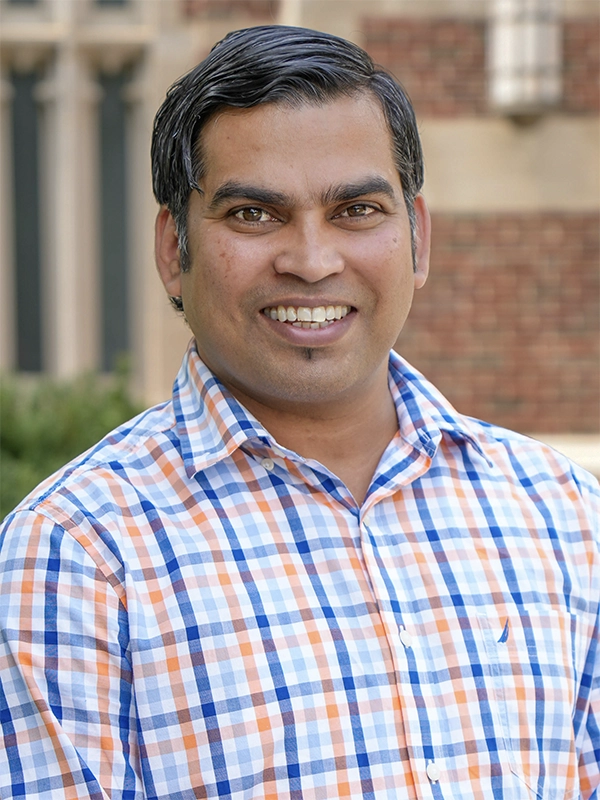Dinesh Gupta

Dinesh Gupta
Assistant Professor
The Gupta Lab studies the physiology of methane-metabolizing archaea, a group of anaerobic microorganisms belonging to the third domain of life. Although microscopic, these archaea play a significant role in global carbon cycling via the production and consumption of methane, a potent greenhouse gas and a valuable bioenergy source. Found in diverse environments ranging from deep-sea sediments and wetlands to the gastrointestinal tract of humans, methane-metabolizing archaea are of immense interest for their potential to improve human health and advance bioenergy and environmental sustainability.
Many microorganisms conserve energy via an electron transport chain—a series of redox reactions that create and maintain a proton gradient across the cell membrane for ATP synthesis. Using both advanced genetics and biochemical approaches, projects in the lab explore the molecular mechanisms of both intra- and extra-cellular electron transfer processes leading to energy conservation in archaea. Of particular interest are c-type cytochromes, a class of redox-active proteins with covalently attached heme groups that can mediate electron transfer. Both methane-producing and methane-consuming archaea possess c-type cytochromes, which are proposed to be crucial for their energy and methane metabolism; however, the functions and biogenesis pathway remain poorly understood. Findings from these studies will not only advance our knowledge of archaea—an understudied domain of life—but can also be utilized in exploring potential applications in sustainable energy and environmental solutions.
Education
B.S., 2008, Tribhuvan University, Nepal, Microbiology
M.S., 2014, California State University, Northridge, Biology
Ph.D., 2020, Washington University in St. Louis, Plant and Microbial Biosciences
Postdoctoral Research, 2020-2025, University of California, Berkeley